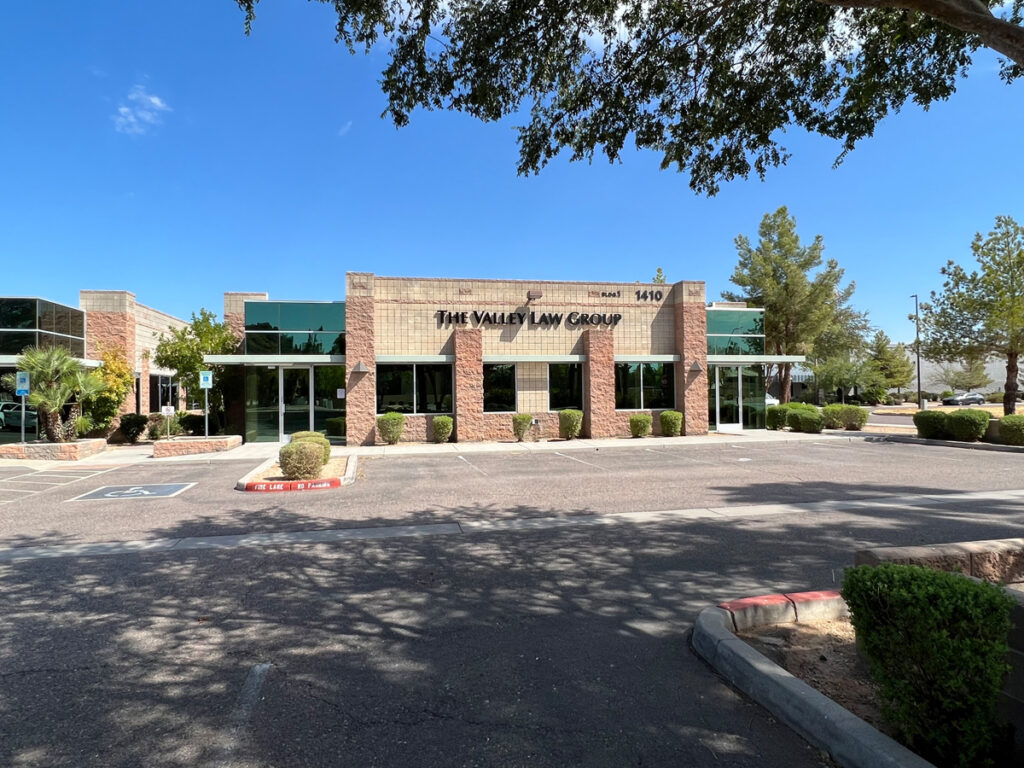Arizona has seen several significant changes in family law that directly affect Gilbert residents. These modifications span divorce proceedings, child custody, spousal support, and domestic violence protections, fundamentally altering how families interact with the legal system. For the close-knit communities of Gilbert, where family values are deeply ingrained, understanding these changes is essential.
As the legal framework evolves to address the complexities of modern family life, Gilbert families must stay informed and adapt, ensuring their legal strategies align with new laws and guidelines. This necessity underscores the importance of knowledgeable legal guidance for navigating these transformative times effectively.
Changes in Child Custody Laws
One of the most impactful changes in Arizona family law has been the shift towards a more neutral terminology concerning child custody. The state now uses terms like “legal decision-making” and “parenting time” instead of “custody” and “visitation.” This change aims to remove the implication that one parent is the primary caretaker and the other is merely visiting, promoting a more balanced approach to co-parenting.
For Gilbert residents, this could mean a more collaborative and less adversarial process in determining arrangements for children post-divorce.
Alimony Reform
Arizona’s approach to spousal maintenance, commonly known as alimony, has also evolved. Recent reforms aim to provide clearer guidelines on the amount and duration of spousal maintenance awards. These changes seek to ensure fairness and predictability in alimony awards, which is particularly relevant for Gilbert’s diverse population.
Residents facing divorce can benefit from understanding how these reforms might impact their financial planning and obligations post-divorce.
Domestic Violence Protections
Enhancements in protections against domestic violence have significant implications for Gilbert families. Arizona law has strengthened orders of protection and has made it easier for victims to obtain them without immediate proof of physical harm.
For residents of Gilbert, where family values are held in high esteem, these strengthened protections offer solace and security to those in vulnerable situations, ensuring that the law backs them in seeking safety and justice.
Parental Relocation Laws
For a town like Gilbert, with a strong sense of community and family ties, Arizona’s parental relocation laws hold particular importance. These laws regulate when and how a parent can move with a child, requiring notification and sometimes court approval if moving a certain distance away.
This law impacts Gilbert residents who may be considering relocation following a divorce or separation, emphasizing the need for legal guidance to navigate these complex situations.
Navigating Legal Changes in Gilbert: From Theory to Practice

In Gilbert, Arizona, recent modifications to family law have introduced a new legal landscape for residents, touching upon critical areas such as divorce proceedings, child custody, spousal support, and domestic violence protections. These changes reflect an evolving legal framework aimed at addressing the complexities of modern family dynamics and ensuring justice and fairness in familial disputes.
Understanding these legal changes is only the first step. The real challenge lies in grasping how these modifications affect the day-to-day lives of Gilbert residents. To bridge this gap between theoretical knowledge and practical application, let’s explore a series of hypothetical scenarios. These narratives will illustrate how typical families in Gilbert might navigate the complexities introduced by the new laws, offering insights into the steps they take, the challenges they encounter, and the strategies they employ to achieve favorable outcomes.
Hypothetical Scenario 1: Navigating Divorce and Alimony Reforms
The Johnson Family
Meet Sarah and Michael Johnson, a couple living in Gilbert, Arizona, who have decided to divorce after 15 years of marriage. They have two children, ages 12 and 9. Michael has been the primary breadwinner, while Sarah has worked part-time and taken care of the children. With the new alimony reforms in Arizona, they are both concerned about how financial support will be handled post-divorce.
Step 1: Initial Consultation with Legal Counsel
Sarah and Michael each consult with their attorneys to understand how the new alimony guidelines might affect their situation. Their lawyers explain that the reforms aim to provide clearer criteria for determining the amount and duration of spousal maintenance, considering factors such as the length of the marriage, the standard of living during the marriage, and the earning capacity of both parties.
Step 2: Financial Assessment
Their attorneys conduct a detailed assessment of the family’s finances, including income, assets, and living expenses. They discuss the need for Sarah to potentially increase her employment to full-time to achieve financial independence, a key consideration under the new reforms.
Step 3: Mediation
Sarah and Michael agree to mediation to negotiate the terms of their divorce, including spousal maintenance. The mediator helps them understand the intent behind the alimony reforms—promoting fairness and encouraging economic self-sufficiency post-divorce.
Step 4: Agreement and Court Approval
After several mediation sessions, they agree on a temporary spousal maintenance plan for Sarah, allowing her time to gain additional qualifications and transition to full-time work. This agreement aligns with the spirit of the alimony reforms, focusing on a fair and equitable outcome for both parties.
Outcome
The Johnsons’ case illustrates how the alimony reforms can influence divorce proceedings, emphasizing the importance of economic independence and the equitable distribution of financial responsibilities. By staying informed and working collaboratively, they reached an agreement that considered their family’s unique circumstances and the broader legal framework.
Hypothetical Scenario 2: Parental Relocation Laws
The Martinez Family
Laura and Antonio Martinez, also from Gilbert, are divorced parents sharing custody of their 10-year-old son, Daniel. Laura receives a job offer in another state, presenting a significant career opportunity but requiring her to relocate with Daniel. Aware of Arizona’s parental relocation laws, Laura knows she must navigate this carefully to maintain Daniel’s relationship with Antonio.
Step 1: Notification and Legal Advice
Laura notifies Antonio of her intention to relocate and seeks legal advice on the proper steps. Her attorney advises her on the requirement to provide written notice at least 45 days before the planned move, as per Arizona law.
Step 2: Negotiating an Agreement
Antonio is initially resistant to the idea. However, through discussions facilitated by their attorneys, Laura and Antonio explore options for modifying their custody arrangement to ensure Antonio remains an active part of Daniel’s life, including longer visits during school breaks.
Step 3: Court Petition
Because they cannot reach an agreement, Laura petitions the court for permission to relocate with Daniel. The court considers several factors, including the reasons for the move, its impact on Daniel’s relationship with Antonio, and Daniel’s best interests.
Step 4: Court Decision
The court ultimately grants Laura permission to relocate, impressed by her efforts to involve Antonio in the decision-making process and her commitment to preserving their son’s relationship with his father. The court orders a revised custody schedule that includes extended summer vacations and regular virtual visitations.
Outcome
The Martinez family’s scenario highlights the complexities surrounding parental relocation laws. It underscores the importance of prioritizing the child’s best interests and maintaining open communication between parents. Through legal guidance and a willingness to find common ground, Laura and Antonio navigated the challenges posed by these laws, ensuring Daniel’s well-being remained at the heart of their decisions.
Moving Forward: Embracing Legal Changes in Gilbert

For residents of Gilbert, Arizona, the landscape of family law is continually evolving, presenting both challenges and opportunities. The recent amendments to child custody terminologies, alimony reforms, enhanced protections against domestic violence, and stricter parental relocation laws are reshaping the way families navigate legal disputes and agreements. These changes not only reflect a shift towards a more equitable and nuanced understanding of family dynamics but also underscore the necessity for individuals to stay abreast of legal developments that could significantly impact their lives.
As Gilbert grows and its community becomes even more diverse, the need for clear, informed legal strategies becomes increasingly important. It is imperative for residents to actively engage with these changes, seeking out professional legal advice to navigate the complexities of the new family law environment. By doing so, they can ensure that their rights are protected, their responsibilities are clearly defined, and their family’s well-being is prioritized.
Looking ahead, the ongoing dialogue between legal professionals, lawmakers, and the community will be crucial in refining and adapting these laws to meet the evolving needs of Gilbert residents. In this dynamic legal landscape, being proactive, informed, and engaged will be key to successfully managing the challenges and seizing the opportunities presented by Arizona’s family law reforms.
The Valley Law Group is Here for Gilbert Residents

Here are just a few of the testimonials from our Gilbert family law clients:
If you are looking for an experienced family law firm in Gilbert, please book a free consultation with our team. We’re here for you!

Jonathan Roeder, Fundador/Director de Marketing de The Valley Law Group, es un nativo de Arizona que ha dedicado su vida y carrera al servicio de los demás. Después de graduarse como salutatorian de su clase de secundaria, Jonathan asistió a la hermosa y prestigiosa Universidad de Pepperdine, donde se especializó en Ciencias Políticas. Durante su mandato en la Universidad de Pepperdine, su pasión por ayudar a los demás creció después de obtener un puesto clínico en un centro de tratamiento residencial para jóvenes con adicciones a sustancias. Después de graduarse, Jonathan regresó a Arizona y se desempeñó como administrador residencial para hogares para personas con discapacidades mentales y físicas.

